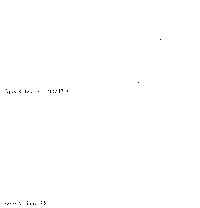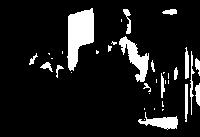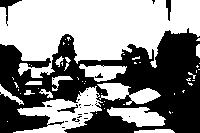In a few days Bowdoin’s first-year students will head home for the holidays with their first college semester under their belts. Here’s a look back at a handful of the dozens of first-year seminars that they participated in this fall: in-depth, intimate classes designed “to help introduce students to what it means to undertake serious intellectual work at the college level,” with an emphasis on research and writing.
WEAPONS OF THE WEAK
Taught by Barbara Elias, Assistant Professor of Government
Despite enjoying a preponderance of resources, the rich and mighty don’t always win in life, or in war. Why? How do peasants and insurgents impose their will on more ‘powerful’ organizations? How do wealthy armies at times lose wars to impoverished rebels? Whereas money and material can be measured, divided, and counted in a spreadsheet, less quantifiable factors in conflict such as ideas, identity, legitimacy, willpower, and fortitude are also important in determining war outcome, perhaps providing surprising opportunities for political forces that are traditionally considered ‘weak.’
Elias: “Students have been challenging assumptions about where power come from in international politics, studying WWII, Vietnam, Afghanistan and the evolving situation in Iraq and Syria. We’ve explored numerous texts including narratives from insurgents and counterinsurgents and primary source strategic documents. The students have done a great job analyzing the political nature of warfare.”
HOW TO READ A MILLION BOOKS
Taught by Crystal Hall, Visiting Assistant Professor in the Digital Humanities
The explosion of digital editions and collections of books offers unprecedented access to rare individual texts and massive bodies of literary and cultural material. What does it mean to ‘read’ a million books? How does it relate to (or obscure) traditional ‘close reading’ of texts? Are computer codes and algorithms something we might read? What kinds of new literary analysis do they make possible?
Ruiqi (Sally) Li ’18: “These two plots are derived from the data I obtained. In each graph, the blue line represents the trend of Sun Yat-sen’s popularity, red Chiang Kai-shek, green Mao Tse-tung and purple Deng Xiaoping. Sun’s and Chiang’s popularities rose slightly over time while Mao’s and Deng’s rose significantly. [Next] I would compare the appearances of their names with the appearances of the world ‘China’ and calculate the relative frequency. In this way, I can get a clearer conclusion how much of the rise in all four names is due to the increase of total number of all books and books about China published and how much is due to the actual rise in their popularity.”

FILM NOIR
Taught by Ann Kibbie, Associate Professor of English
A survey of film noir from the hard-boiled detective films of the 1940s to later films that attempt to re-imagine the genre. Films include The Big Sleep; Murder, My Sweet; Double Indemnity; Gun Crazy; In a Lonely Place; and Chinatown. Readings include some of the original novels that were adapted for the screen, as well as works of film criticism and/or theory.

Still from “Double Indemnity” (Wikimedia Commons)
Kibbie: “We have been focusing on some of the classic films that came to be labeled ‘noir.’ Visually and thematically rich, and ranging from hard-boiled detective stories to explorations of nuclear terror, these works provide a great introduction to the language of film, and to the place of film in cultural history.”
Lynda (Chamblee) Shufflebarger ’18: “Film Noir has been an amazing class. We have been able to study film and cinematographic techniques along with the stylistic motifs of film noir as a subgenre. We have also been able to study the literature of the 40s and 50s, which has given the class a sense of the mood of post-war society and the methodology of transferring text onto the big screen.”
Rachel Musante ’18: “We have very thoughtful discussions about the novels we read and their film adaptations as well as compare those to other film noirs that we watch. The most meaningful part of the class for me has been our discussions about the blatantly sexist portrayal of women (as the femme fatale) in film noir and the implications that has for a society. Taking a genre as specific as film noir and talking about it in a larger cultural context has been really rewarding for me as a student and person.”
PERSONAL GENOMES
Taught by Jack Bateman, Samuel S. Butcher Assistant Professor in the Natural Sciences
An introduction to the field of genetics and its impact on the modern world. As the cost of DNA sequence analysis plummets, many believe that sequencing entire genomes of individuals will soon become part of our routine preventive healthcare. How can information gleaned from your genome affect decisions about your health? Beyond medical applications, how might personal genetic information be used in other areas of your life and in society as a whole?
The students of Bateman’s seminar had a brainstorming session to summarize their semester, and here’s what one group came up with:
“In our seminar we discussed the broad scientific and deep ethical issues surrounding genetic testing. Specifically, our discussions included the idea of ‘genetic superiority,’ the interplay between nature and nurture in athletes, the growing field of epigenetics, ownership and privacy issues surrounding genetic sequences, the Genetic Information Non-Discrimination Act (GINA) and its strengths and faults, the risks of discrimination based off of genetic differences, and Pre-implantation Genetic Diagnosis (PGD). We read articles that introduced these topics, then discussed them online and in-class, with a focus on ethical, legal, and social issues.”

Photo: Jack Bateman



